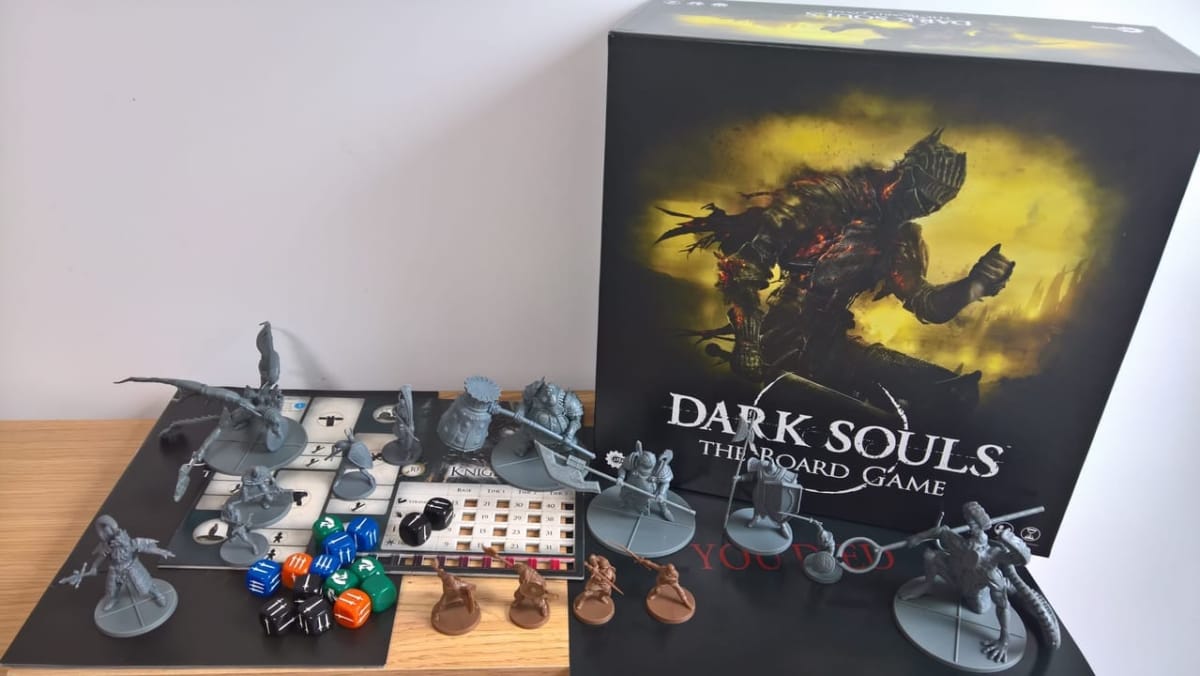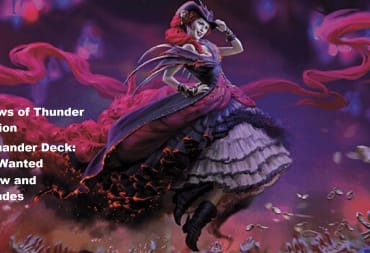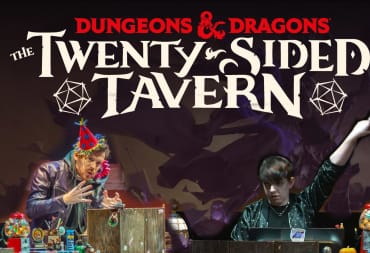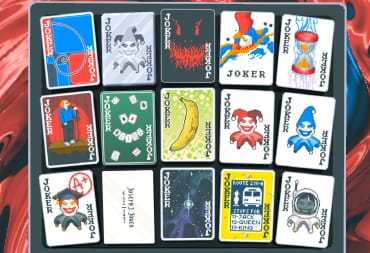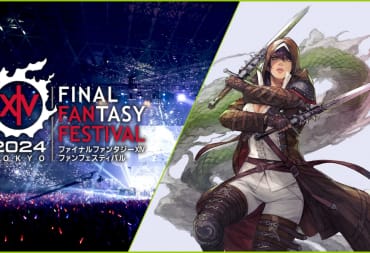Welcome to the second part of this series of articles here at TechRaptor. We’re going to be looking into the development process of making a video game into a tabletop game. We’ll talk about why more and more IPs are moving into the tabletop genre, we’ll review video game IP tabletop games, talk to development teams about the difficulties of bringing a video game to life on the tabletop, as well as exploring different tabletop game types.
Our first stop was for Wargaming, looking at Fallout: Wasteland Warfare. Our stop this time is Dark Souls: The Board Game by Steamforged Games. Dark Souls: The Board Game started life as a successful Kickstarter, which also brought to life Dark Souls: The Card Game. Steamforged Games are now in the process of delivering the Kickstarter and the huge amount of unlocked expansion packs and stretch goals. In this article, we'll take a look at the core board game set, how the video game transitions to the tabletop, and we will also talk to Alex Hall, one of the game designers on Dark Souls: The Board Game.
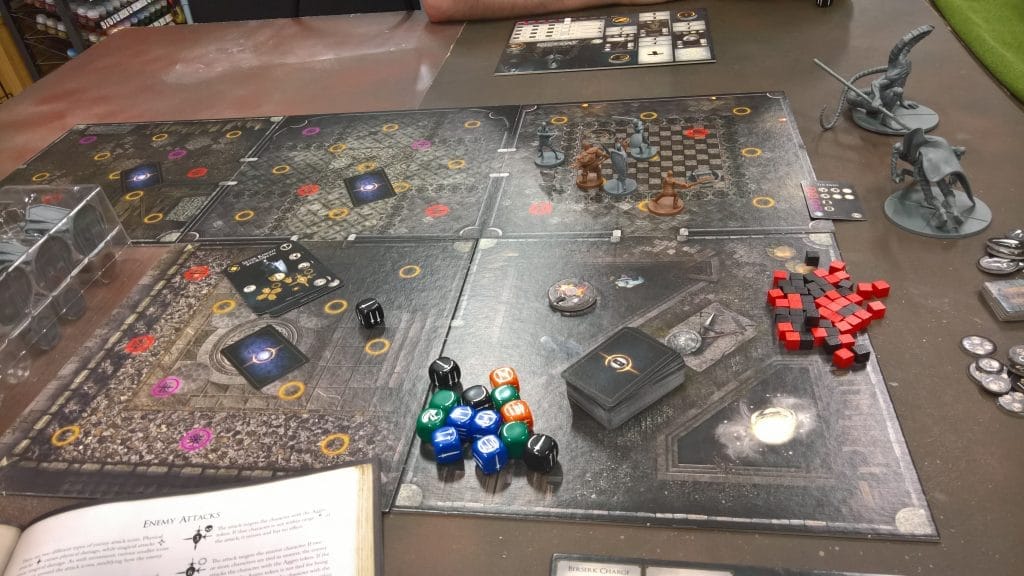
What is a board game?
A board game differs from a wargame in that its contents are usually fixed to the box you are playing from and sometimes expanded on with extra but not essential expansion sets. Teams and forces can be created out of the box, but there is no requirement to build your own force like you would in a wargame. Board games are also usually played on a board, with fixed measurements like squares, tiles or hexes, rather than wargames, which use measurement systems for movement and range. There has been a lot more blending of war and board games recently, and some even taking on collectible card game (CCG) and roleplaying game (RPG) elements, so the line blurs every year. As a general rule, if you're not creating a force from a wide selection of available units and you're not using a tape measure for movement and weapon range, you are probably playing a board game.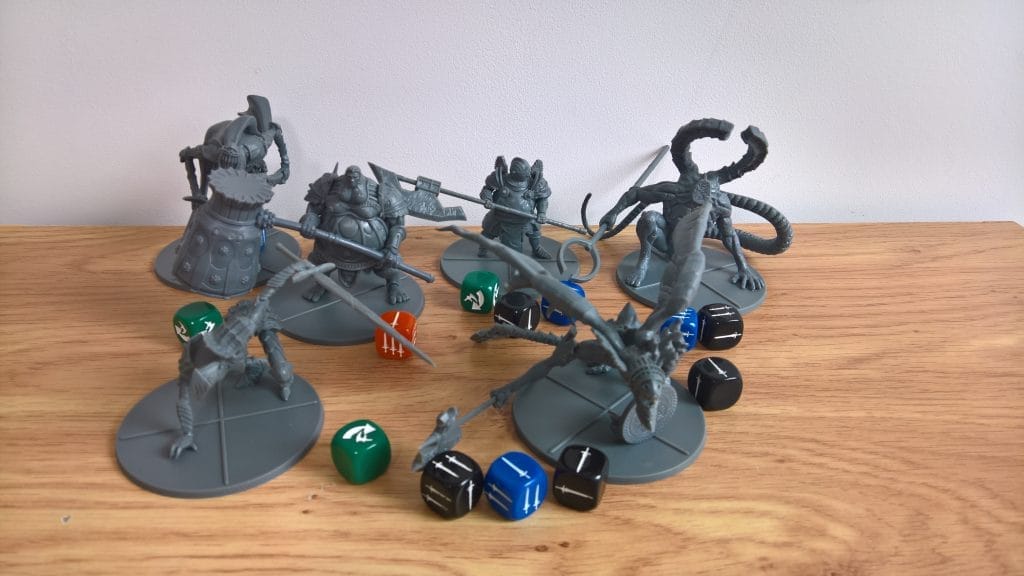
What is Dark Souls: The Board Game?
Dark Souls: The Board Game is a tabletop version of the hugely popular Dark Souls franchise of video games. The Dark Souls video game was first released in 2011, and due to its unique and unforgiving playstyle, became extremely popular and spawned two direct sequels. The Dark Souls video games are known for being notoriously difficult, and during gameplay, players' characters would die a lot, forcing them to learn from their mistakes and repeat actions and routes again. The setting is also known for being extremely dark.Dark Souls: The Board Game is Steamforged Games' capturing this world, and bringing the dark theme and unique playstyle to the tabletop. In the core set, players have four character to chose from, and during gam play you get the option between one of four mini-bosses to fight, and then one of two main bosses to fight after. Dark Souls: The Board Game can be played solo or with up to three friends.
Dark Souls: The Board Game Review
As this articles focus is on the development and transition of the video game franchise to tabletop, this isn't a review in the traditional sense of giving it a score, but more to explain how it feels to play it.During set up, players select their character classes and the bosses they will fight. The bosses aren't needed until later though, as your characters are not even close to being ready to attempt a boss fight. The board game has several game tiles, and you set up four of these around your home base, "the bonfire." The bonfire is where you return after defeat or in-between encounters to rest or buy equipment. Visiting the bonfire to rest or after defeat takes a spark from the bonfire, of which there is a limit depending on how many players you have. Resting at the bonfire also resets any enemies that you may have killed, so if you die or chose to rest, you're fighting your way through them again.
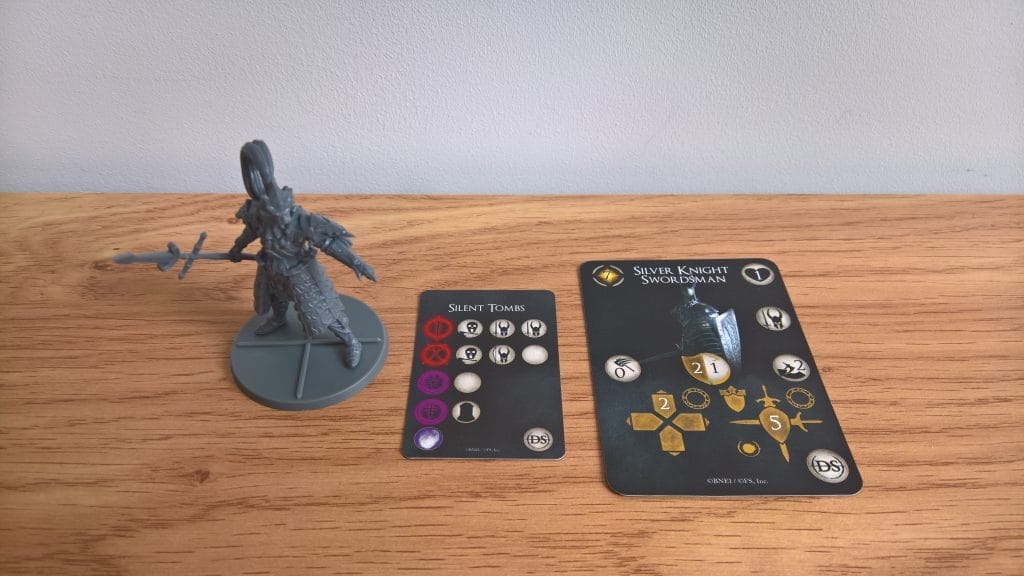
Exploration and enemy attacks are handled by cards that detail deployment and enemy actions. This goes some way to letting you plan in advance the best way to defeat them, which in the early stages is very much based on luck with a little judgement. You get to level up after defeating enemies and visiting the bonfire, and this is done by paying with souls from defeated enemies or spending souls to take your luck on drawing from the treasure deck. After each successful encounter, you will also get some free draws from the treasure deck.
Combat is based on rolling a selection of special dice for attack and defense and looking for the right amount of sword symbols to damage your enemy. All the stats are printed on the cards from your starting equipment or those you draw from the treasure deck. There are three types of attack dice: black, blue, and orange. Black have the least amount of sword symbols and some blanks, and blue and orange have greater numbers of sword symbols.
Equipment cards have a balance of standard attacks, and attacks that cost stamina to do more damage, but using stamina is also linked to your health bar, so sometimes taking out enemies quickly, or dodging attacks, can lead to your character dying thorough loss of stamina.
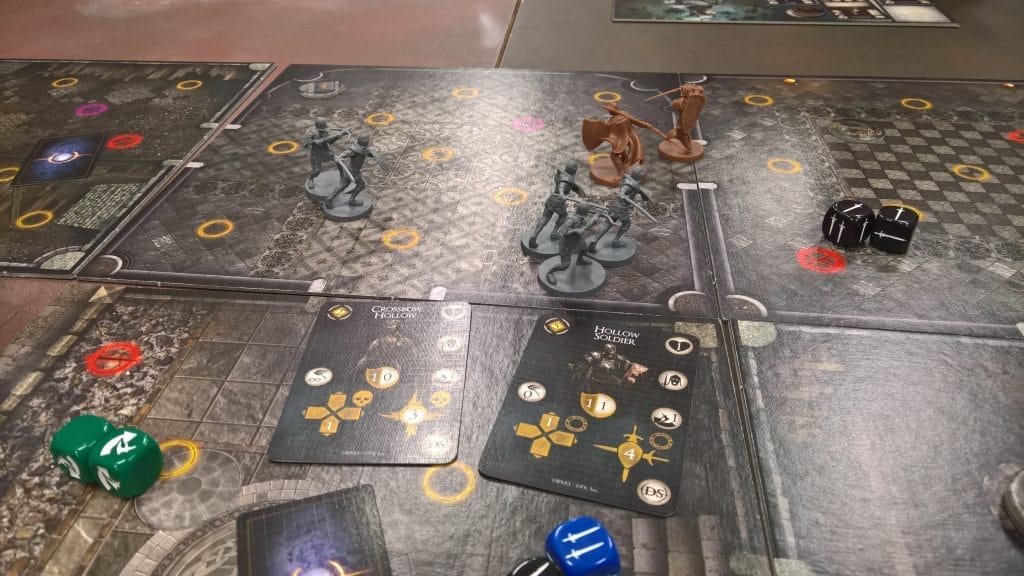
Dark Souls: The Board Game is hard. During our playtest, we died. A lot. But unlike Dark Souls: The Card Game, where you can tactically manage your health and actions with some luck on card draws, a lot of Dark Souls: The Board Game is based on dice rolls initially. If you roll some particularly bad dice, you're dying and going back to the bonfire, and then at the bonfire, if you draw treasure cards that you can't use, you're going back into the same encounter with the same equipment into a fight that you might not be able to win. During out playtests, we had extremely poor draws from the treasure deck for the first few games, drawing cards that we couldn't possibly upgrade to and having to go back into a difficult encounter, in the hope that taking out a few enemies before dying again and drawing better cards next time. A possible fix for this could be a split shuffled treasure deck, with lower levels items in the initial deck, and then shuffling the remainder of the deck in later on, possibly after the mini-boss fight.
As it happened, on our third playtest game, we drew some great items after our first defeat and were able to storm through a couple of more rooms, and upgrade again with our acquired loot before taking on the mini-boss, whom we defeated. Then died shortly after. We got to the main boss twice during our several playtests and were defeated both times, but damn were we close to victory.
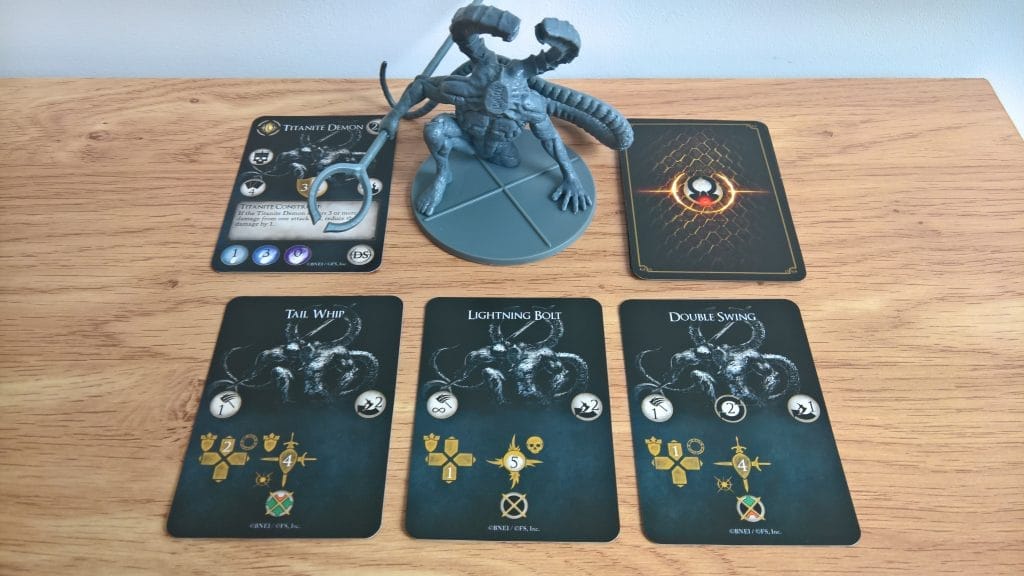
The boss fights are where Dark Souls: The Board Game shines, and aside from the theme the whole game oozes, where the tabletop game most resembles the video game. Normal minions fight with actions detailed on their cards, but the bosses have mini-decks of attacks that once you know the order can be planned for but rarely avoided. Dark Souls: The Board Game is a co-operative game, and this is where that really comes across. Planning, moving, predicting, and attacking as a squad against a large enemy brings communication to the fore. Defeat here never felt hollow as you knew the challenge going in. You're still at the mercy of the dice rolls and equipment draws, but it feels like an enemy to be challenged. Some of the minion battles can be frustrating and is usually the result of chance rather than skill, which was our only negative for the game.
The detail throughout is incredible, and the miniatures give the game a real sense of purpose and emphasize the theme perfectly. Ultimately, fans of Dark Souls will love Dark Souls: The Board Game; there's a lot to enjoy, and it captures the video games exceptionally well. For non-Dark Souls fans, they could be put off after their first few games with some bad dice rolls or treasure draws, but persevere until after you've experienced a boss battle, because that's when it shines.
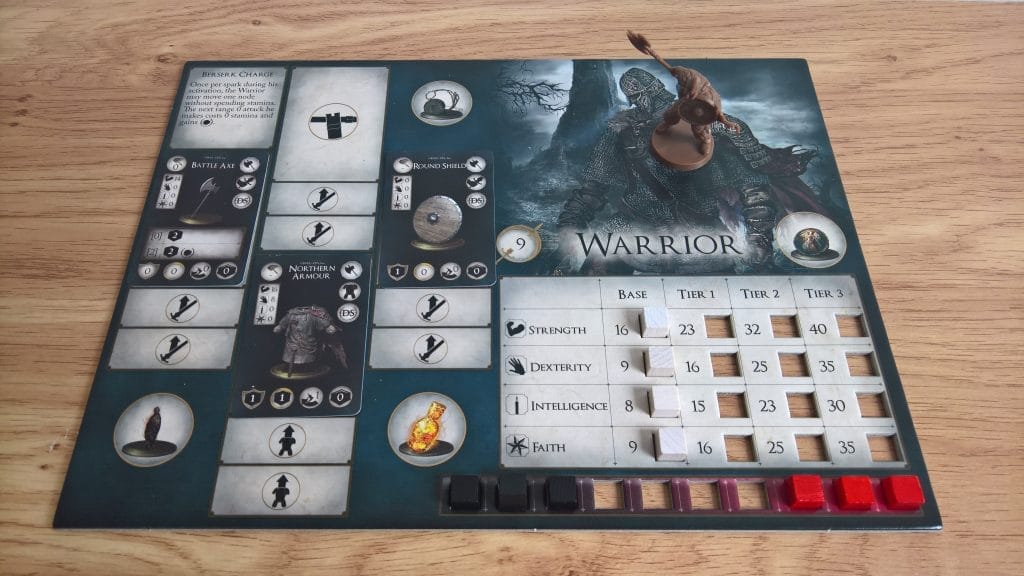
Dark Souls: The Board Game Developer Interview
I talked to Alex Hall, one of the game designers from Steamforged Games who worked on Dark Souls: The Board Game about bringing the Dark Souls universe to the tabletop.TechRaptor: What was the thought process behind the creation of Dark Souls: The Board Game? Was it that you've always wanted to create a Dark Souls game? Did it start as something else, was it always a Dark Souls game that you built up, or a board game that you decided to put Dark Souls IP to?
Alex: The foundation of the behaviour decks to represent programmed AI was a concept that had been worked on for a while and Dark Souls™ seemed like the perfect IP to apply this early concept to.TR: How many months/years of releases have you planned/mapped out or are all those planned out those that were mentioned in the Kickstarter?
Alex: There are a few post Kickstarter products in the works, but at the moment the entire focus is delivering the Kickstarter content.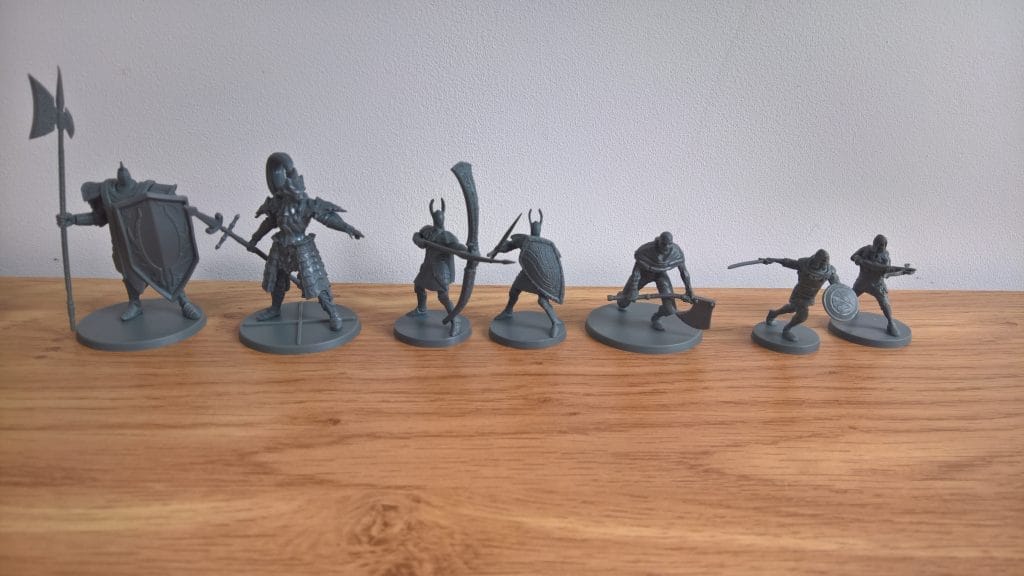
TR: Was the thought process behind the co-operative side of play based around the transition from video game to tabletop game? Was it always co-op with AI controlled enemies? Did you play around with having a player control the enemies?
Alex: The plan had always been to have the AI controlled enemies, the behaviour cards were an integral part of the game from initial design through to the final stages of development.TR: You've obviously tried to capture the rich atmosphere of the Dark Souls series, how difficult was that to put into the board game and how did you go about getting the level of atmosphere and detail that you did into the game?
Alex: The biggest part of getting the feel correct was establishing the correct level of tension. Dark Souls™ is very good at ensuring that every time you turn a corner you’re petrified of what could be lurking there, but as you get familiar with your surroundings and learn where everything is you begin to slip into an almost comfortable state. This state is when you’re at your most vulnerable, and over confidence will almost always result in your demise. Replicating this was certainly a challenge, but the team are very satisfied with the outcome.TR: What were the key elements you believed in capturing from the series in the tabletop games?
Alex: As mentioned above, the tension is extremely important because it helps reinforce the importance of each decision you make. A lot of the key elements exist to enable a steady gain in tension leading to a boss fight which, if all goes well, leads to a really satisfying release when you finally take them down. After dusting yourself off, sights are set on your next challenge and the cycle continues.Managing your stamina correctly is also a huge part of Dark Souls™ series so ensuring that was present was also very important to capture. Having your health and stamina on a combined endurance bar really pushes the dilemma of what you do during your activation.
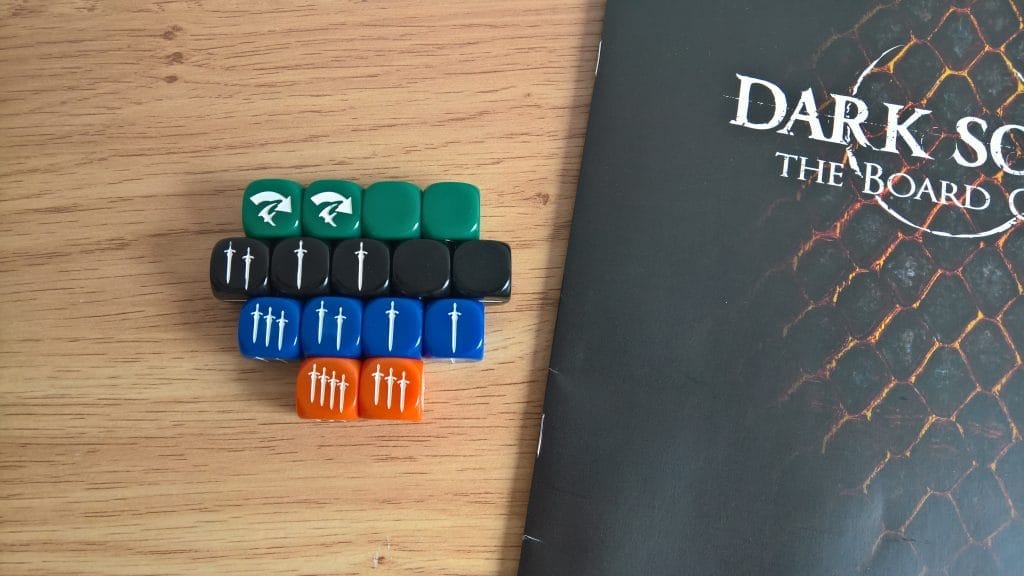
TR: A game like Dark Souls can make a ton of minute adjustments behind the scenes to affect game feel and play. How do you try to translate those impacts to the game?
Alex: There are definitely limitations within the format that prevent us from that level of control. Having variety in the quality of dice certainly helps, and being able to balance how reliable an attack is versus the stamina cost helps maintain a degree of choice for the players.TR: How closely did the developers at FromSoftware work with you?
Alex: We have a great working relationship with Bandai Namco and in turn, FromSoftware. We could not be happier with the involvement of all parties to bring this great range of products to life.TR: The boss fights and the way that their attacks play out when you know the order of the deck feels like a video game. Tell us about the transition from video to board game? Was the aim to get that feel? What other elements were worked on to get the video game feel?
Alex: A big part of Dark Souls™ bosses, well any enemy in fact, is the memorization of what they do and working out the safest window to attack. We knew this was something we wanted to incorporate, and it also gave us a really useful tool to adapt between bosses. For example, if there was to be a boss that is known for being very predictable we could alter the heat up rules to remove the shuffle, making our version equally as predictable.There is a huge amount of design space within the system, and some of these are really pushed to extremes with the mega boss expansions.
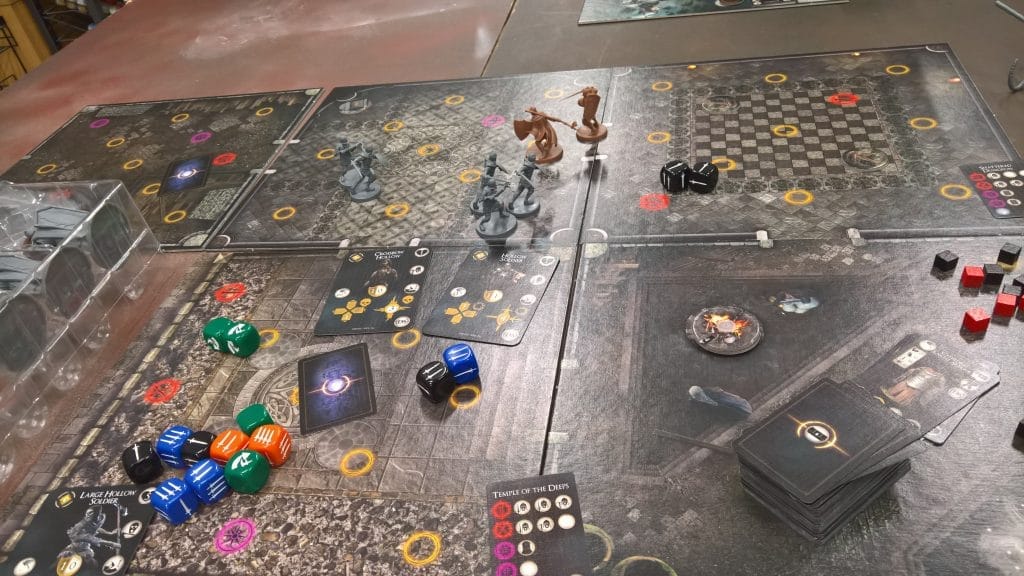
TR: The AI in the game feels great, did you have any difficulties with that part of the design? Were any other AI options played around with?
Alex: The behaviour card mechanics changed a fair amount during development, a lot of the process was establishing boundaries and figuring out exactly what we wanted each enemy type to do. We had variants where every enemy had a behaviour deck, but that led to the exploration encounters taking longer than desired… so those got simplified down to single cards that each enemy of the same type would do.Once we really started to get a grasp of the system we had a huge amount of fun developing the bosses, the finalised symbol language gave us a huge amount of variety between behaviours.
TR: Dark Souls: The Board Game is obviously very difficult—we died a lot during testing—how was it finding the balance between impossible and near impossible?
Alex: It was certainly a big challenge, and mathematical costing assisted with the process once we had a deep enough understanding to ensure it was accurate. Following on from that it was just a huge amount of playtesting to ensure we were hitting the mark of what we were aiming for.TR: Dark Souls: The Board Game will appeal to the video gamer fans of the franchise, and it’s very apparent the effort you’ve put in to bringing the setting to life, but you’ve also got tabletop gamers interest as well. How difficult is it trying to satisfy both groups?
Alex: I think a more strategic and tactical game is always more likely to also appeal to tabletop gamers so I wouldn’t say it comes as a huge surprise that there is a degree of cross over. The balance is in the decision-making elements, you need provide enough to choice to ensure the game is engaging while not drowning your players with complication.TR: The weapons in the board and the card game still have a unique feel in the options they give you. How difficult was it to make each weapon feel unique?
Alex: Fortunately we have a huge amount of source material in terms of equipment, so using those strengths and weaknesses of weapons helped inform what each weapon was capable of. After that it’s just a case of ensuring you have enough levers to fiddle with to ensure you don’t have duplicates.TR: With the card game being released alongside the board game, were there difficulties in doing two tabletop adaptations of the series? Did that affect how you developed either one?
Alex: There were definitely some interest conversations that happened between he development teams, each project had its own strengths… but also it’s own limitations. Though the card game implements a version of the behavior cards the main innovation, so to speak, was the deck representing your life. We learned a lot about the behavior cards with the board game, so that knowledge helped inform enemy behavior in the card game and enabled a lot of the focus to shift to making the deck as your life concept really shine.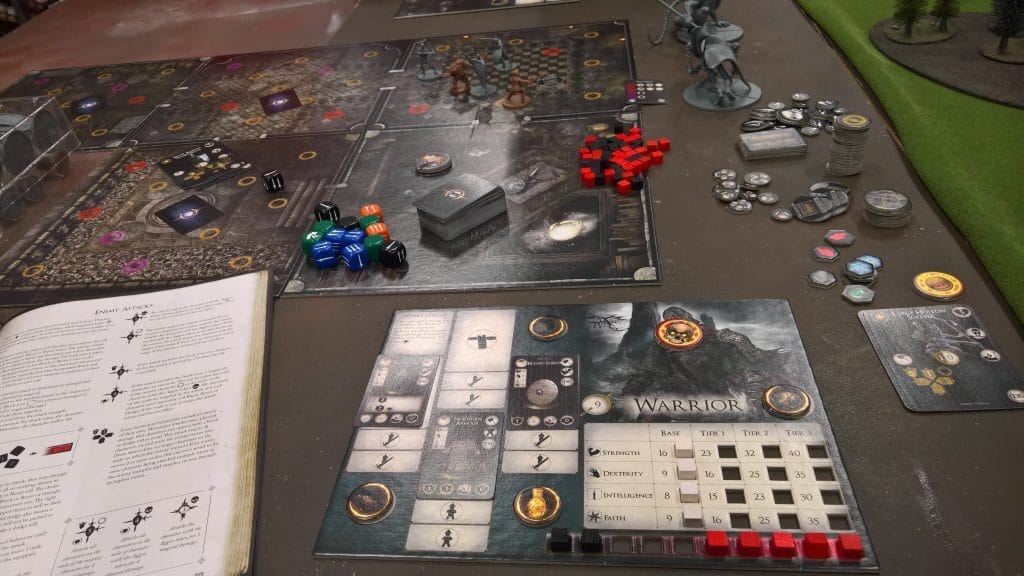
TR: Which is your favourite Dark Souls game?
Alex: It’s close between the original Dark Souls™ and Dark Souls™ 3, it’s hard to beat the original but 3 does a really good job of rounding the series off… a greatest hits if you will.TR: What's your fondest Dark Souls memory?
Alex: The first time I accidental parried an attack. The sound scared me to death, I had no idea what had happened… and then I panic dodge rolled and fell off a bridge. Upon respawning I ran back to the area in search of the enemy that had made such a deep bellowing noise, turns out it was me all along.TR: Which is your favorite character to play in Dark Souls: The Board Game?
Alex: Probably the Warrior or the Knight, I like the big two handed weapons so the stat distribution of those two characters fits me perfectly!TR: What’s your favorite weapon in the Dark Souls board game and video game?
Alex: In truth, any Greatsword… or Ultra Greatsword. The Fume Ultra Greatsword and the Moonlight Greatsword would definitely be towards the top, with an honourable mention for the Butcher Knife because it carried me through the early stages of Dark Souls 3! Also a big fan of the weapon art on the Uchigatana. That sweet, sweet extended parry never gets old.TR: And finally, as we're such huge fans of Dark Souls: The Card Game, do you have any plans to develop it further with expansions?
Alex: I’m glad you enjoy it, the development team did an amazing job on the card game project. We absolutely will be, keep your eyes peeled!Note: The first expansion for Dark Souls: The Card Game, called Forgotten Paths, has been announced for release in September and is available to pre-order here.
Have a tip, or want to point out something we missed? Leave a Comment or e-mail us at tips@techraptor.net
